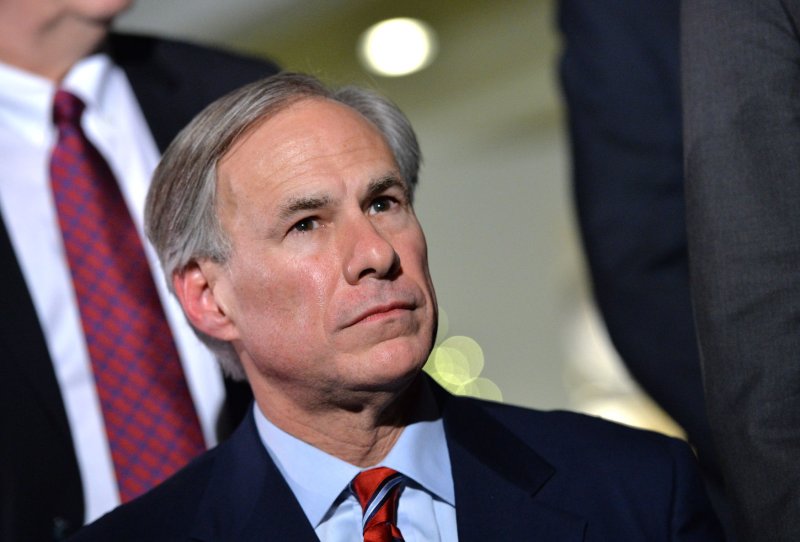Texas Gov. Greg Abbott said he plans to "immediately" appeal a federal judge's decision to block the state's controversial SB4, which he vocally supported before signing into law. Photo by Kevin Dietsch/UPI |
License Photo
Aug. 31 (UPI) -- A federal judge Wednesday put a temporary block on a Texas law that bans "sanctuary cities" in the state and potentially punishes officials from promoting them.
The ruling by Judge Orlando L. Garcia of United States District Court for the Western District of Texas prevents Senate Bill 4 from going into effect Friday pending a lawsuit against the state filed by the American Civil Liberties Union on behalf of several Texas cities, including Houston, Dallas, Austin and San Antonio.
"Sanctuary Cities" do not have a set legal definition but generally refer to local laws or ordinances that restrict how the federal government can enforce immigration laws in designated areas. SB 4 was written to outlaw that concept by prohibiting cities and counties from passing any law or ordinance that limit federal immigration enforcement.
The bill also allows police officers to question anybody they detain, forces local law enforcement to cooperate with detainer requests from federal immigration officials and threatens fines, imprisonment and removal from office on any state, county or city official who interferes with the enforcement of the state law.
According to the New York Times, Garcia blocked three provisions of the law, including the one that says officials can't "adopt, enforce or endorse" policies that limit enforcement of immigration laws, which he said amounts to a violation of the First Amendment.
"The government may disagree with certain viewpoints, but they cannot ban them just because they are inconsistent with the view that the government seeks to promote," Judge Garcia wrote. He added, "SB 4 clearly targets and seeks to punish speakers based on their viewpoint on local immigration enforcement policy."
Lee Gelernt, the deputy director of the ACLU's Immigrants' Rights Project who argued the case the case against the state, said the law "patently unconstitutional.
"Senate Bill 4 would have led to rampant discrimination and made communities less safe. That's why police chiefs and mayors themselves were among its harshest critics -- they recognized it would harm, not help, their communities," Gelernt said.
Texas Gov. Greg Abbott, a staunch supporter of SB 4, said the state will "immediately" appeal.
"Today's decision makes Texas' communities less safe," Abbott said in a statement. "Because of this ruling, gang members and dangerous criminals, like those who have been released by the Travis County Sheriff, will be set free to prey upon our communities."















